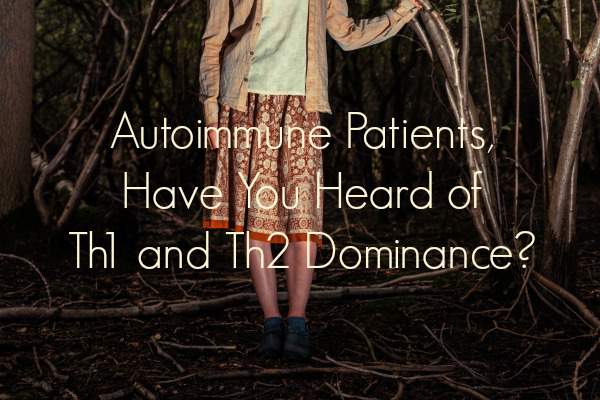
I remember the day I was reading the book Why Do I Still Have Thyroid Symptoms? When My Lab Tests Are Normal by Dr. Datis Kharrazian and came across the section on the importance of Th1 and Th2 dominance in Hashimoto’s Thyroiditis. I had never heard of this concept before and found it intriguing. I recently came across Mickey Trescott’s explanation of Th1 and Th2 dominance and felt it important to share with all of you.
Written by Mickey Trescott
Those that suffer from autoimmune disease commonly experience symptoms that stem from imbalances within the functioning of their immune system. There are many factors that can influence this balance – stress, nutrition, vitamin and mineral deficiencies, gut flora, and allergies, among others. This way of looking at autoimmune disease is a growing trend in the alternative field, highlighted through the work of Datis Kharrazian.
In this article I hope to give readers a basic explanation of how the T-helper cells work within the immune system, as well as what factors can cause them to be more or less in balance.
What are Th1 and Th2?
T-helper cells (abbreviated as Th) are a vital part of the immune system. They are lymphocytes (types of white blood cells) that recognize foreign pathogens, or in the case of autoimmune disease, normal tissue. In response to this recognition, they produce cytokines, which are hormonal messenger proteins that are responsible for the biological effects of the immune system. They are divided into subgroups as follows:
Th1: Th1 cells are involved in what is called “cell-mediated” immunity, which usually deals with infections by viruses and certain bacteria. They are the body’s first line of defense against pathogens that get inside our cells. They tend to be pro-inflammatory and are involved in the development of organ-specific autoimmune disease.
Th2: Th2 cells are involved in what is called “humoral-mediated” immunity, which deals with bacteria, toxins, and allergens. They are responsible for stimulating the production of antibodies in response to extracellular pathogens (those found in blood or other body fluids). They tend not to be inflammatory and are involved in systemic autoimmune disease and other chronic conditions.
In a well-functioning immune system, both groups of these T helper cells work together to keep the system balanced. One side might become more active to eradicate a threat, then settling back to a balanced level.
How does this affect autoimmune disease?
In some people with autoimmune disease, patterns showing a dominance to either the Th1 or Th2 pathway have been shown. Although there are exceptions, the following table shows the conditions that are most commonly associated with a Th1 or Th2 dominant state:
TH1 dominant conditions:
Type I diabetes
Multiple sclerosis
Hashimoto’s Thyroiditis
Grave’s Disease
Crohn’s Disease
Psoriasis
Sjoren’s Syndrome
Celiac Disease
Lichen Planus
Rheumatoid Arthritis
Chronic viral infections
TH2 dominant conditions:
Lupus
Allergic Dermatitis
Scleroderma
Atopic Eczema
Sinusitis
Inflammatory Bowel Disease
Asthma
Allergies
Cancer
Ulcerative Colitis
Multiple chemical sensitivity
When the Th1 cells of the immune system are overactive, they can suppress the activity of Th2 and vice versa. This can be problematic because these two components of the immune system function in a delicately balanced relationship. In the case of autoimmune disease, imbalance can further the attack on healthy tissue, thereby worsening symptoms.
Although research can lump those with certain conditions under the Th1/2 categories, in reality they can be all over the map. For instance, although most Hashimoto’s patients present a Th1 dominance, some can be Th2. It is also possible to have both Th1 and Th2 simultaneously overactive or under-active. Pregnancy can shift the immune system temporarily to Th2, which is why a lot of women find out they have Hashimoto’s after they give birth and their immune system returns to Th1 dominance.
How do I find out if I am Th1 or Th2 dominant?
There is a Th1/Th2 cytokine blood panel that your doctor can order to find out if your immune system is imbalanced. You can also do a challenge with certain nutritional compounds that stimulate either Th1 or Th2, although this can be tricky and is best done under the supervision of a practitioner.
What is the protocol for balancing the immune system?
Dr. Kharrazian is the practitioner who has developed the protocol for treating autoimmune disease by balancing Th1 and Th2. If Th1 is dominant, he will use Th2 stimulating compounds to raise the level of Th2, and vice versa. In addition, he uses other vitamins and compounds that are known to modulate the balance between Th1 and Th2. His view is that by balancing Th1 and Th2, the autoimmune attack is lessened and the body is able to function closer to normal. He also places his patients on an autoimmune gut-repair diet. Many people have been helped by using this protocol for the treatment of Hashimoto’s disease.
That being said, balancing the immune system for those with autoimmune disease is still tricky business and baffles even the most skilled practitioners. There are many people who have had a negative experience using this type of treatment, most likely because it is easy to accidentally stimulate their dominant pathway, causing the autoimmune attack to worsen. The Th1/Th2 stimulating compounds are as follows:
Th1 stimulating compounds:
Astragalus
Echinacea
Medicinal Mushrooms (Maitake and Beta-Glucan are common)
Glycyrrhiza (found in licorice)
Melissa Oficinalis (Lemon balm)
Panax Ginseng
Chlorella
Grape Seed Extract
Th2 stimulating compounds:
Caffeine
Green Tea Extract
Pine Bark Extract
White Willow Bark
Lycopene (found in tomatoes and other red fruits excluding strawberries and cherries)
Resveratrol (found in grape skin, sprouted peanuts, and cocoa)
Pycnogenol (found in the extract of the French maritime pine bark and apples)
Curcumin (found in turmeric)
Genistin (found in soybeans)
Quercitin (a flavanoid found in many fruits and vegetables, such as onions, berries and kale)
Why is it important to know about these compounds?
As you can see, many items on the list are common and are used by many people on a regular basis. Echinacea, for example, is a common herbal cold and flu remedy, but it can cause someone with a Th1 dominant condition to worsen. Likewise, a person with a Th2 dominant condition that is drinking a few cups of coffee everyday could be unintentionally stimulating the already dominant Th2 pathway. The opposite could be true – a Th1 dominant person may benefit from the consumption of caffeine, although this gets a little messy when you add a person’s adrenal status to the mix (caffeine may help them if they have low cortisol, but they could still be Th2 dominant and have worsening autoimmune symptoms from it).
If you suffer from an autoimmune disease, chances are you are going to be sensitive to supplements that effect the immune system. Just knowing how powerful these compounds are is useful information even if you are not going to attempt to use them to balance your levels of Th1 and Th2.
Is there a safer way to balance Th1 and Th2?
Playing with the balance of Th1 and Th2 is tricky and some people do not do well with it, even under the care of a practitioner. Using vitamins and nutrients that naturally modulate the balance between Th1 and Th2 or support T-regulatory cell function is much less risky than taking supplements that directly stimulate either one. The following compounds have been shown in studies to do this:
TH1 and TH2 modulating compounds:
Probiotics (found in fermented foods like kimchi, saurkraut, yogurt, kombucha, kefir, as well as probiotic supplements)
Vitamin A (found in liver, such as beef liver supplements sourced from grass-fed cows and arctic cod liver oil as well as butter and eggs from pastured animals)
Vitamin E (found in red palm oil, pastured egg yolks, avocados, as well as nuts and seeds)
Colostrom (a mother’s first milk that is available in immunoglobulin concentrate supplement form)
T-regulatory supporting compounds:
Vitamin D (obtained by sunbathing, also found in liver, cod liver oil, sardines, raw dairy and pastured eggs, as well as supplement form)
EPA and DHA (found in fatty cold-water fish such as salmon, sardines and mackerel as well as in pastured meats and eggs in smaller quantities, and fish oil supplements)
In conclusion, I believe that it is good for autoimmune patients to know which compounds stimulate Th1 and Th2 because of how they can better or worsen the progression of disease. Knowing one’s Th1 or Th2 dominance and treating with supplements to achieve balance can be helpful to some, but I don’t believe that is the best and safest approach for everyone. If you do decide to go this route, make sure to enlist the help of a practitioner who is skilled at using this treatment for autoimmune disease. A safer alternative is to focus on compounds that have been shown to modulate the immune system, in addition to implementing other strategies that have been shown to help autoimmune disease.
*This post was originally created for The Paleo Mom and re-posted here at Hypothyroid Mom with permission. Sarah Ballantyne, Ph.D. (a.k.a. The Paleo Mom) is author of the book called The Paleo Approach.
About Mickey Trescott
Mickey Trescott is the cook and blogger behind the website autoimmune-paleo.com, which provides recipes and resources for the autoimmune protocol. After recovering from her own struggle with both Celiac and Hashimoto’s disease, adrenal fatigue, and multiple vitamin deficiencies, Mickey started to write about her experience to share with others and help them realize they are not alone in their struggles. She is a certified Nutritional Therapy Practitioner by the Nutritional Therapy Association.
READ NEXT: Married to Hashimoto’s: Where’s the woman I married?

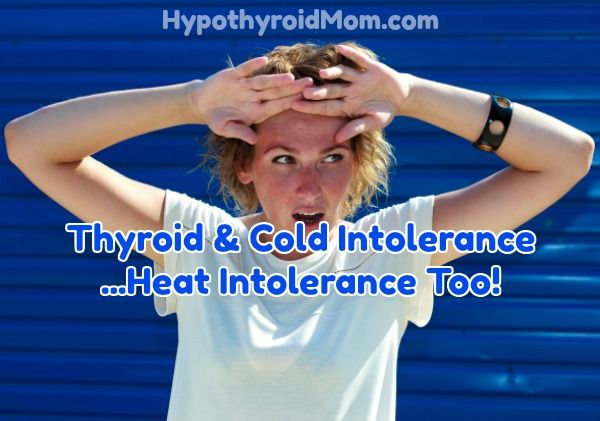

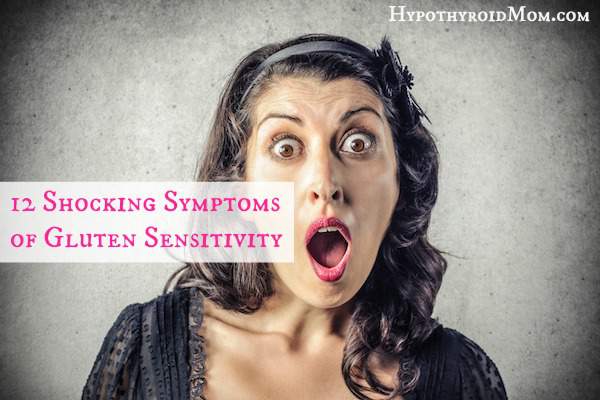
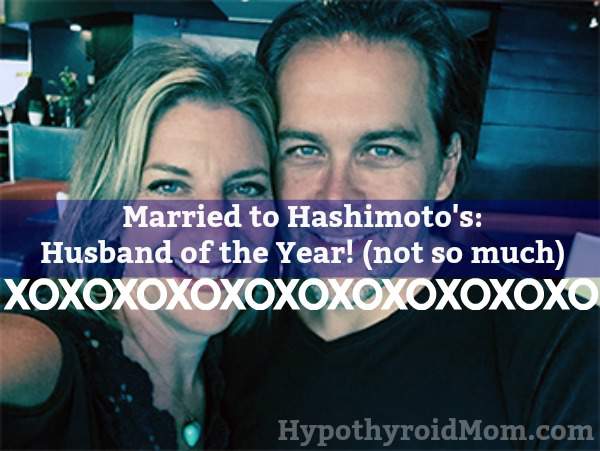
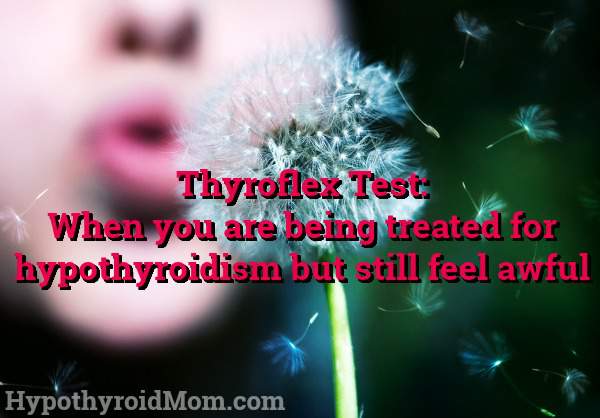

Hi,
Finding this awesome info for the first time, but already followPaleo mom!
I have hashimotos, but don’t take anything on the TH1 stimulating list. I take 3 things regularly on the TH2 stimulating list. It show hashimotos is TH1 dominant. Do I eliminate from the TH2 list and add from TH1? Not sure if Im reading this right.
Thank you!
What about elderberry? TH1 or TH2 stimulating?
If I have sjogrens Th-1 should I stay away from Echinacea and drink more green tea?
Thank you
Since both Th1& Th2 seems to both be linked to microbiome dysbiosis, wouldn’t a good recommendation be to do an antimicrobial like grapefruit seed extract?
I appreciate your simply put explanation on T1 and T2 illness. I have read some articles that are so complex they make my head spin, but, like you mentioned, there is much more to it than what you put. I want to mention an immune modulator that works better than any of the ones that you mentioned. It’s called low dose naltrexone therapy. I take it and I also give it to my dog, who has hashimotos. I actually see him respond much better to it than I have, but my health situation is extremelly complex. I have an immune deficiency with so much more to consider. I encourage you and your readers to investigate LDN (low dose naltrexone). If someone is interested in it, they can call a local compounding pharmacy and ask them for names of doctors who prescribe it in their area. It has very promising results!
I am on LDN and have been for 4 years or so and it has done wonders for my Hashimotos. I asked my doctor for it after researching it for my issues and saw a significant decrease in my autoimmune responses to food and environmental triggers. Recently my doctor suggested “Black Seed Oil” which is supposed to have the same effect on your immune system. I havent tried it yet, however for those not in a position to get LDN from a practitioner or someone who wants a natural product this one may be worth trying. Just do your homework and know what you are taking, who is producing it and how, and how much is enough vs how much is too much.
When you state that LDN improved your Hashimoto’s, which antibodies types were elevated in your case? TPOs, Tg or both? From the research I have done, it specifically helps with lowering tg antibodies but not much for TPOs. Thanks!! 🙂
“Naltrexone hydrochloride is a pure opioid antagonist. It markedly attenuates or completely blocks, reversibly, the subjective effects of intravenously administered opioids”
are using Naltrexone as a immune modulator?? You are giving this to your dog??
There must be some confusion here as Naltrexone is not used for immune therapy but for opioid suppression.
LOW dose Naltrexone (emphasis on low- usually under 4.5 mg) is used to treat autoimmune conditions by many doctors. Naltrexone given at high doses (50mg) is used to treat addiction.
I’ve been researching Th1 and Th2. I have discoid lupus and Sjogrens. This article is well written, yet another source of contradiction. It’s been a bit frustrating trying to settle on the most accurate information from internet sources toward my goal of careful advocating for my health. I read another article -sourced from ncbi.nlm.nih.gov pubmed that put Sjogren’s Syndrome very clearly in the Th2 dominant category. *sigh
I would lean more toward “ncbi” as
Sjogrens being TH2 dominant as correct.
Don’t know why sites say it’s TH1, it’s not
organ specific as far as I can see.
Try to do a blood panel,to see your numbers
Good luck,
bg
The author cleary got the Th1 and Th2 dominant conditions mixed up as she said Th1 immunity protects against viruses and Th1 dominance leads to chronic viral infections….
I have experienced both MS and UC in my life. A TH1 and a TH2 dominant condition. Does this mean that my body has fluctuated between both dominants in my immune system? I am currently showing no effects of either disease. I was considering Lions Mane mushroom to heal lesions in the nervous system. Will Lions Mane mushroom make me TH1 dominant?
I appreciate your thoughts
Along with Th1 and Th2 one can not forget that they should also be tested for celiac and non celiac. There is a great Wheat Zoomer by Vibrant health that helps identify all the allergens from wheat. It is often seen that eczema, hypothyroids, certian colitis are caused by food allergies. The upregulation of your immune system starts in the gut, heal this first.
It isn’t as simple as just TH1 and TH2. In 2005 TH17 was discovered and plays a huge role in autoimmune issues. Individuals can experience a cytokine storm and very quickly vacillate back and forth between immune suppression and immune stimulation etc…there’s so many research articles available but it can be a bit overwhelming with information overload.
Do you think alopecia Universalis is Th1 or Th2?
I read on another site that if you are th2 dominant you should avoid the things that are in this article. I have UC and was a habitual green tea drinker. Was told to quit green tea. This article says to drink green tea. Now I am confused.
If Green Tea is not your “cup of tea” what would be the symptoms?
I believe you are reading it wrong, the list shows what stimulates T2 further, items would make things likely worse, it’s a stay away from list. I read it wrong first to,but later the article says you may feel worse having items in the list if it’s under your dominance.
Thank you for clarifying. I have sjogrens and the symptoms of dry eyes and mouth is driving me batty. Should I drink more green tea?
My TSH normal, TPO-Ab high, is Th1 or Th2, thanks